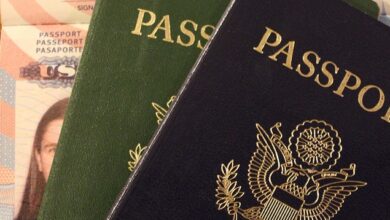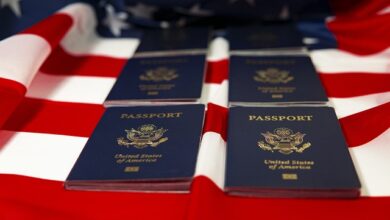Legal Rights and Responsibilities of Dutch Citizens

The Netherlands is renowned for its progressive society, strong emphasis on human rights, and a well-structured legal framework that ensures equality, justice, and social cohesion. As a Dutch citizen, whether by birth or naturalization, it’s essential to understand both the rights granted under Dutch law and the responsibilities expected in return. This article explores the key aspects of these legal rights and obligations, offering insight into what it means to be a responsible member of Dutch society.
1. Legal Rights of Dutch Citizens
a) Civil Liberties
Dutch citizens enjoy a wide range of civil liberties protected by the Constitution and international treaties. These include:
- Freedom of Speech: The right to express opinions freely without fear of censorship or retaliation, provided such expression does not incite violence, discrimination, or hatred.
- Freedom of Religion: Every individual has the freedom to practice their religion or belief system, or none at all, as guaranteed by Article 6 of the Dutch Constitution.
- Right to Privacy: Citizens are entitled to protection against unlawful intrusion into their personal lives, including data privacy safeguards enforced by laws like the General Data Protection Regulation (GDPR).
b) Political Rights
As a Dutch citizen, you have the right to participate actively in the democratic process:
- Voting Rights: Eligible citizens can vote in national, provincial, municipal, and European Parliament elections. Voting is not compulsory but is seen as an important civic duty.
- Right to Run for Office: You may stand for election to public office, subject to meeting specific eligibility criteria.
c) Social and Economic Rights
The Dutch welfare state prioritizes social security and economic stability for all citizens:
- Access to Education: Free primary and secondary education is available to all children, with higher education subsidized by the government.
- Healthcare Services: Universal healthcare coverage ensures access to medical services through a combination of public funding and private insurance.
- Labor Rights: Workers enjoy protections such as fair wages, safe working conditions, paid leave, and unemployment benefits.
d) Judicial Rights
Every Dutch citizen is entitled to due process under the law:
- Equality Before the Law: No one can be discriminated against based on race, gender, religion, sexual orientation, or other personal characteristics.
- Right to Fair Trial: Individuals accused of crimes have the right to a fair trial, legal representation, and presumption of innocence until proven guilty.
2. Legal Responsibilities of Dutch Citizens
While enjoying extensive rights, Dutch citizens also bear certain responsibilities to uphold the values and principles of their society. These duties contribute to maintaining order, promoting inclusivity, and fostering community spirit.
a) Compliance with Laws
All citizens must adhere to national and local laws, which cover areas such as traffic regulations, tax obligations, and environmental protection. Ignorance of the law is not accepted as an excuse for non-compliance.
b) Taxation
Paying taxes is a fundamental responsibility of every Dutch citizen. Revenue collected from income tax, sales tax (VAT), and property tax funds essential public services like healthcare, education, infrastructure, and social security programs.
c) National Defense
Although conscription was suspended in 1997, young men between the ages of 18 and 27 still receive a formal notice reminding them of their potential obligation to serve if military service is reinstated. Women are now eligible for voluntary enlistment in the armed forces.
d) Environmental Stewardship
Citizens are encouraged to adopt sustainable practices in line with the Netherlands’ commitment to combating climate change. This includes reducing waste, conserving energy, and supporting green initiatives.
e) Civic Engagement
Active participation in community life strengthens societal bonds and promotes mutual respect. Volunteering, attending town hall meetings, and engaging in dialogue about societal issues are ways to fulfill this responsibility.
3. Balancing Rights and Responsibilities
The relationship between rights and responsibilities is symbiotic. While the government protects individual freedoms, citizens must act responsibly to preserve harmony within the community. For example:
- Exercising freedom of speech comes with the responsibility to avoid spreading misinformation or hate speech.
- Enjoying social benefits requires contributing to the system through work, taxes, and lawful behavior.
- Access to public spaces demands respect for shared rules and consideration for others’ safety and enjoyment.
4. Special Considerations for New Citizens
For individuals who acquire Dutch citizenship through naturalization, understanding cultural norms and legal expectations is crucial. The integration process involves:
- Passing a civic integration exam demonstrating knowledge of Dutch language, history, and culture.
- Pledging allegiance to the Dutch Constitution and legal system during a formal ceremony.
- Adapting to local customs while retaining one’s own cultural identity.



